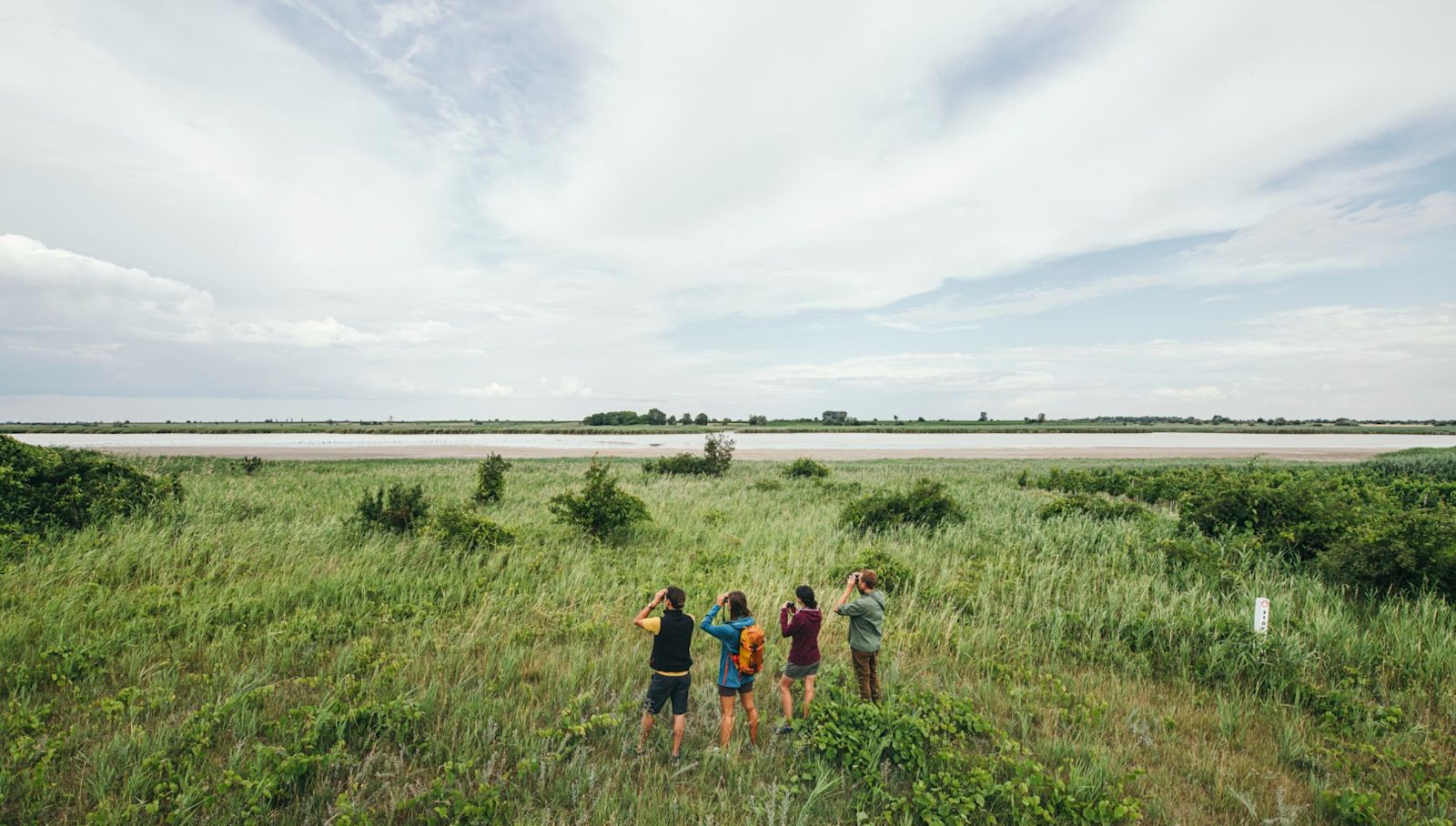Nature is good for us. Its many positive effects on human well-being have been proven in numerous studies, with these benefits particularly apparent in areas of high biodiversity.
Getting out in nature is quite simply good for us. Breathing in the clean, fresh air, listening to the birds tweeting, and taking in the colors and scenery – all these things make us happy and have a positive effect on our well-being.
In general, people who have access to green spaces tend to be healthier and have a reduced risk of dying prematurely. Nature on your doorstep is a real motivation to be more active. And it’s widely known that physical activity can help to avoid cardiovascular diseases, diabetes, and strokes.

Health in
the air
As well as being very relaxing, a forest stroll also boosts our immune system. This is due to terpenes, substances used by plants to communicate with each other and fend off enemies. Japanese researchers have discovered that when we go “forest bathing,” these same messengers activate the body’s natural killer cells, which ward off disease. So, breath by breath, the forest enhances our well-being.

Prescribed
by doctors
The Shetland Islands in Scotland are facing various health challenges. More and more inhabitants are suffering from conditions such as diabetes, anxiety, and depression. As part of their treatment, the health authorities are aiming to encourage people to spend more time outdoors in this spectacular natural setting. The ten medical practices on the islands are working closely with the British Royal Society for the Protection of Birds (RSPB), which is producing a seasonal calendar designed to inspire islanders to take up birdwatching.

Priceless
nature
Nature offers huge benefits for our health. Scientists from Griffith University in Brisbane calculated that national parks and nature conservation areas around the world help to save 5.4 trillion euros ($6.3 trillion) in health costs each year through prevention of mental health conditions.


Happiness
is a bird
A healthy environment with great biodiversity has particularly positive effects on both physical and mental health. Numerous studies have shown the connection between biodiversity and well-being. To verify these assertions, scientists are increasingly considering the number of birds in the surrounding area, as these winged creatures are ideal indicators of biological diversity.
In a European study, researchers at the German Centre for Integrative Biodiversity Research (iDiv), the Senckenberg Society for Natural Research, and Kiel University found that more bird species in an area increased life satisfaction to a similar extent as a pay rise. It therefore follows that the happiest Europeans are those who can experience many different species of birds each day or who live in natural, varied, and biodiverse landscapes.

The healing power
of nature
Convalescing patients recover faster after an operation and need less pain relief if they spend time outdoors in green settings. This applies even if they can simply look out over a green space from their hospital window.

Easing
of stress
An outdoor lifestyle has been proven to reduce stress. For example, a hike in a forest reduces the level of the stress hormone cortisol in the blood, which in turn has a positive effect on pulse and blood pressure. Our bodies regenerate in a relaxed state. This also strengthens the immune response. Interestingly, simply looking at a forest – in comparison to a city – also reduces cortisol concentration.

More greenery
less ruminating
Contact with nature plays an essential role in preventing and managing mental health conditions. It alleviates negative feelings such as anxiety and rage. Even a one-and-a-half hour walk in nature reduces the tendency to dwell on problems, a particular issue for people suffering from depression. A walk in a forest can also provide relief for sleep disorders.


We are less alone outdoors
In urban areas in particular, green spaces are important meeting places that play a major role in social interactions. We now know that people with lots of social contacts tend to live longer and suffer less frequently from depression and later dementia.
People on low incomes with access to few free alternatives benefit most from green spaces. The positive effects of nature for functioning social integration should also not be overlooked: experiencing nature with others is an inclusive experience for disadvantaged or marginalized groups, such as individuals with a migrant background.
We benefit immensely from time out to enjoy and contemplate nature. It is therefore in our own interest to preserve these landscapes and habitats for the good of our health.













